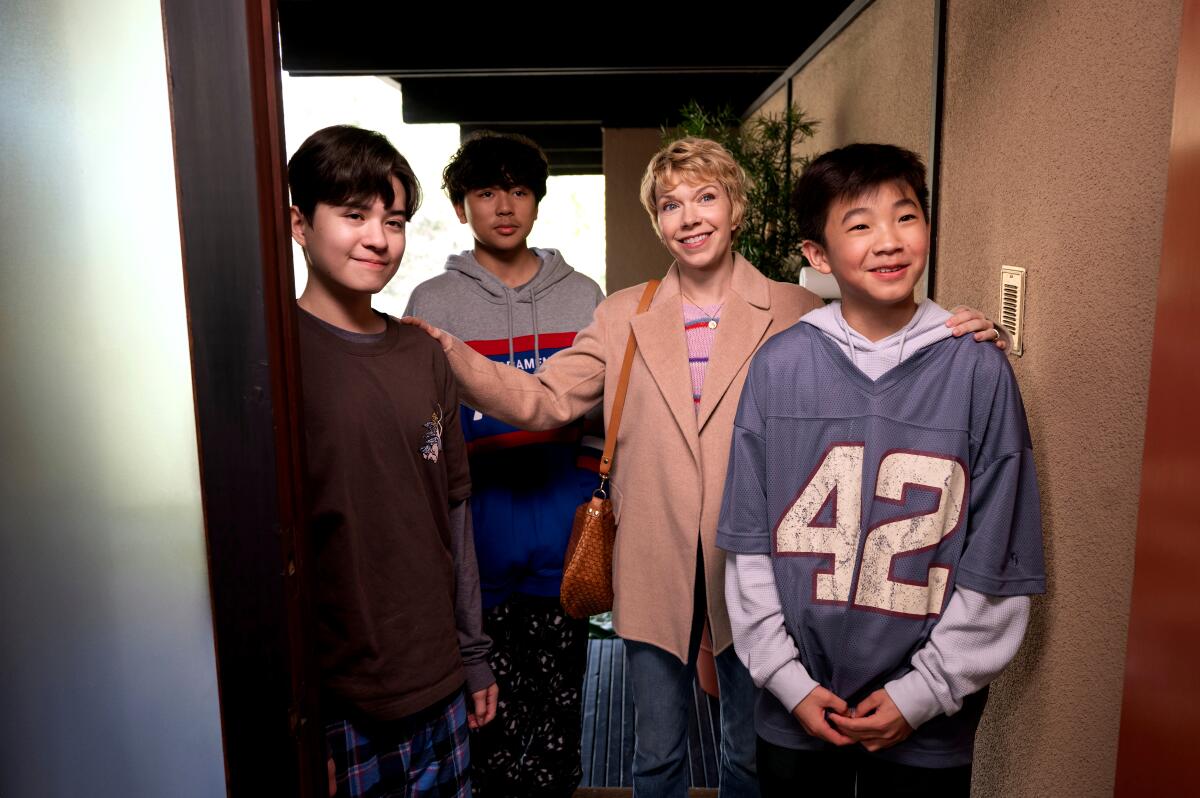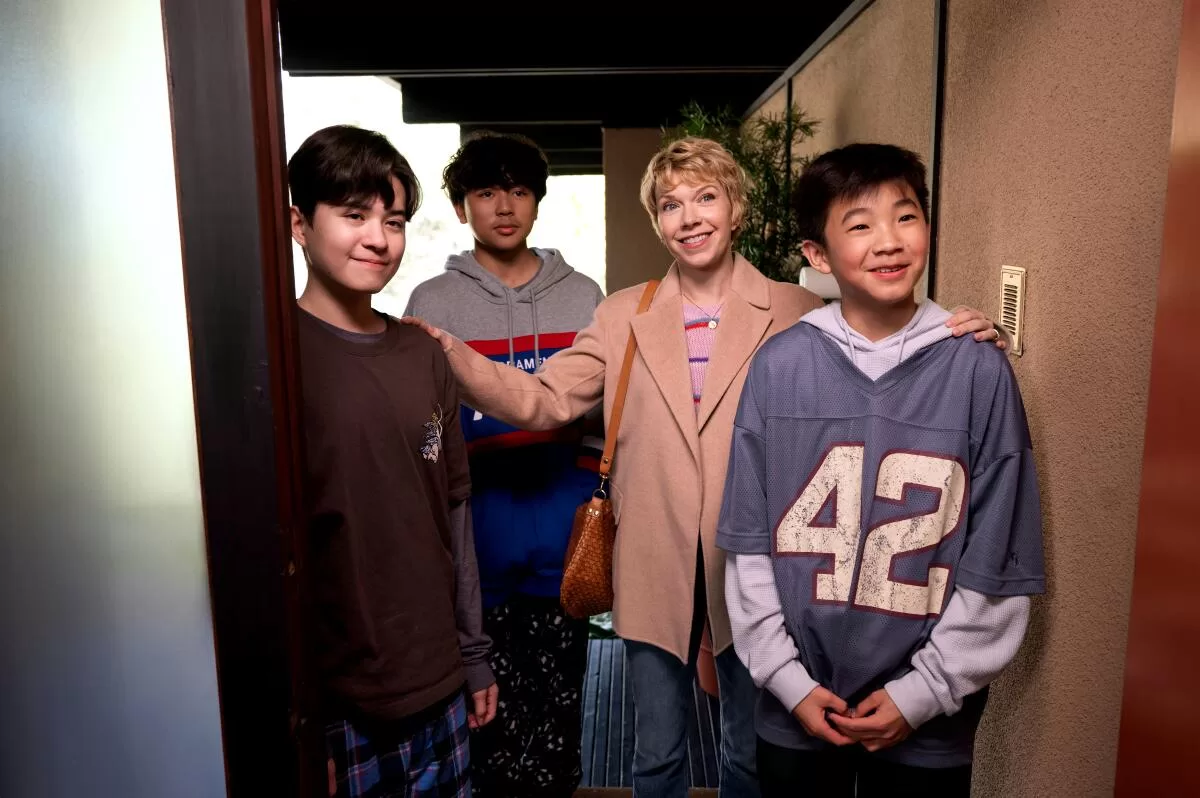My first memory of Ted Danson is of him dancing solo to Frank Sinatra in a pool of light on a pier in the movie “Body Heat,” which is all I remember of “Body Heat.”
It set a tone of gracefulness that continues to inform his performances to this day, in a wide range of soft-spoken modes, from “Cheers” to “Bored to Death” to “CSI: Crime Scene Investigation” to “Curb Your Enthusiasm,” where he appears as a version of himself. He mostly plays comedy, because that’s what a likable actor is liable to be asked to do, but he can work against type with the best of them, as he did as a corrupt billionaire in “Damages.”
That Danson, assumed to be an angel, turned out to be a devil in the first season finale of “The Good Place,” was a massive fake-out that depended on subverting our expectations, not only of his character but also of the actor himself. (That the character became a force for good felt almost inevitably on brand.) He works all the time, and yet one greets every new appearance with a sort of grateful excitement, as if he had been away somewhere for years.
The latest Danson series is “A Man on the Inside,” premiering Thursday on Netflix, but it is in most every other respect a classic NBC Thursday night comedy. It comes from Michael Schur, who created “The Good Place” (a classic NBC Thursday night comedy), with which it shares a philosophical bent, playing with questions of mortality and morality and the meaning of life, explicitly but not pedantically. It’s sweet and serious, and as the series goes on, knockabout comedy makes room for poignancy. But it never stops being funny.
Danson plays Charles, a well-to-do retired professor of engineering, who after a year is still mourning his late wife. Without work or friends — a dramatic convenience that will allow him to find both — he has settled into a comfortable rut, amplifying what we’re to understand is a reserved, cerebral nature; he’s fascinated by facts and figures, but less good with people. He has a daughter, Emily (a marvelous Mary Elizabeth Ellis), who lives a couple hours away with husband Joel (“Good Place” vet Eugene Cordero) and three comically unresponsive kids — Wyatt Yang, Deuce Basco, Lincoln Lambert, oddly brilliant doing essentially nothing. Charles and Emily love one another without being exactly close. She’d like her father to get back into the swing of life, to un-retire or find a hobby, instead of merely mailing her articles he’s clipped from a newspaper. The paper newspaper!

In “A Man on the Inside,” Charles (Ted Danson) has a daughter named Emily (Mary Elizabeth Ellis) and three comically unresponsive grandchildren, Nico (Lincoln Lambert, left), Wyatt (Wyatt Yang) and Jace (Deuce Basco).
(Colleen E. Hayes / Netflix)
It’s in the newspaper that he comes across a classified ad, reading: “Wanted, Investigative Assistant, Male 75-85, Must have phone.” This brings him to the office of Julie (Lilah Richcreek Estrada), a private investigator whose client (Marc Evan Jackson, also from “The Good Place”) has hired her to look into the theft of his mother’s ruby necklace from her room in a posh San Francisco retirement home. Julie needs a senior citizen to go undercover in that “closed ecosystem” — that is, closed to her — to collect information, identify suspects and report back.
The premise seems improbable, yet the series is based on a 2020 Chilean documentary feature titled “The Mole Agent,” which tells just such a tale. That Charles is, at least to begin with, what Julie calls “the best option in a sea of not very good options,” is of course the point, and the starting point. The bumbling spy is a reliable comic figure, and Charles, masking ill-conceived lies with more ridiculous ones, would seem weird to anyone taking him at face value — if it were any other face than Danson’s.
At the Pacific View retirement community, Julie poses as Charles’ daughter, and when Emily arrives unexpectedly, he introduces her to the director, Didi (Stephanie Beatriz), as “my niece … Julie,” adding an extra layer to the farce. (“My brother, um, had a child, and it grew into her,” he’ll say, making a later awkward introduction.) Emily is skeptical of the whole arrangement — “You know, reading a bunch of Sue Grafton novels doesn’t make you a detective,” she tells her father — but it will also, as it bumps along, bring them closer together. It’s that kind of show.
As a person in his late 70s — Danson is 76 — one would say that Charles is a fish only half out of water in this environment; in his erect bearing and chiseled-profile, lead-actor handsomeness, he remains subtly distinct from his peers. Which is not to say that they’re a sedentary crew: Charles finishes his first night drunk — happy hour begins at 3 p.m. — and stoned, and he wakes up in the morning with two slices of pizza stuck to his back. (“Thank God,” he says to Julie, who has roused him from hungover sleep. “I’m starving.”)

The series also stars Margaret Avery as Florence, left, and Sally Struthers as Virginia.
(Netflix)
Sally Struthers, who doesn’t get as many meaty roles as she deserves, is Virginia, flirty and forward. (“You are tall” are her first words to Charles.) Elliott (John Getz) regards Charles as competition. An affecting Susan Ruttan plays Gladys, a gentle, former costume designer, forgetting things. Solitary Calbert (Stephen McKinley Henderson) proves a temperamental match for Charles. Florence (Margaret Avery) tempts him into reading Shakespeare, which goes over his head. (Significantly, he’s assigned the “Seven Ages of Man” speech from “As You Like It,” in which life’s last age is described as “second childishness and mere oblivion, sans teeth, sans eyes, sans taste, sans everything.”) And I was glad to see Veronica Cartwright among the crowd, as well — a minor role, but, still, it’s Veronica Cartwright.
From the beginning of his learning curve, Charles charges ahead with a mixture of professional determination, childlike glee and scientific precision — finding the atmosphere “rife with secrets, grudges, interpersonal issues.” He compiles thick dossiers on everyone — when not questioning his fitness for the job. But even as he gets the hang of the work, he becomes more interested in the people than the case. He forges bonds and makes friends, which Julie warns him against. “Being a spy means being lonely,” she says, missing the point of the series she’s in.
While it isn’t as rich and strange as “The Good Place,” “A Man on the Inside” is nevertheless a pleasure on most every level, and, as before, Schur wants more than just to make you laugh. To the extent that it’s sentimental, it’s also clear-eyed, genuine and conceptually rigorous.
Many of us will have had the experience of managing older parents, or trying to. Many of us are old ourselves. Death waits offstage here, in plain sight. All these septuagenarian actors are still working, with years of experience and shelves of awards among them, at the top of their game — even if the people they play are not. In a sense, they’re just pretending to be old.
